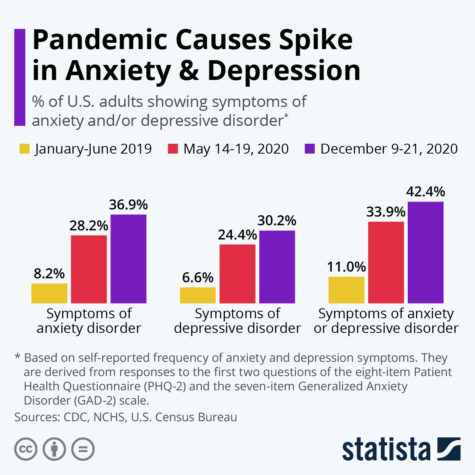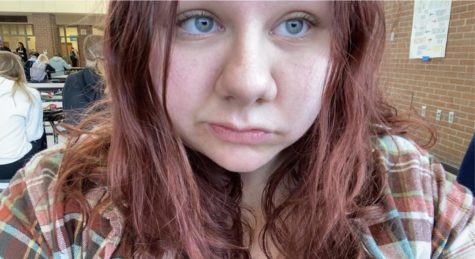Mental Health, The Pandemic, and Us.
November 2, 2021
This year has been rough on teens, especially our mental health. With school, social status, family, maintaining relationships, and the pandemic, it is not easy. A recent survey conducted by Mental Health America found 54% of 11 to 17 years old reported frequent suicidal thoughts and self mutilation in the last two weeks, the highest rate ever recorded since the Mental Health America Association started screening in 2014.
“If kids don’t have their mental health in check, those academics are going to- its going to be a toilet bowl” says Jaclyn Friedman-Lombardo, director of counseling and physiological services at Montclair State University.
So, how can we combat mental illness among teens while still being safe during COVID19? We reached out to our very own counseling center and they were kind enough to give us some suggestions on how to cope in this rough time. Here’s what they said: “if we all practice patience with everyone” Mrs. Schlenker said. She also said that in order to practice patience with everyone, we must be compassionate, empathetic, and we need to create a safe and welcoming environment. How do we do this? We can do this by forming healthy relationships with others in our community.
Another question that we asked was “what have you noticed about the mental health up rise in our community?” Mrs. Boehm said “we have seen increases of anxiety with limited resources for therapy and such. We have also noticed lots of students reaching out at the same time, with little access to help due to the pandemic. Additionally, students don’t know what they’re feeling and are scared to be wrong while reaching out.”

Next, we asked Mrs. Eider about coping mechanisms and combating stress. She said, “Its been difficult because there is decreased support due to the pandemic. South has lots of resources like the calming room, the counselors are always there when we need someone to talk to, and there are some sources on the FPS website.” We also asked what coping mechanisms do you recommend for students. Here’s what they said: “we recommend breathing exercises, we have fidgets around the counseling center, practicing mindfulness, self soothing, tolerance for others, and we can provide little booklets with unique coping mechanisms.”
In conclusion, mental health is rapidly declining for everyone. But thanks to Souths’ help with the community and our school, we have many ways and recourses, we can work towards combating additional stress by making this school a safe and healthy environment.





